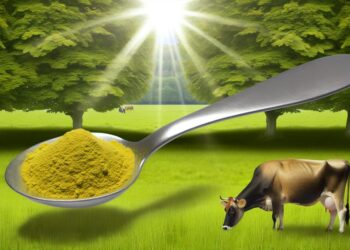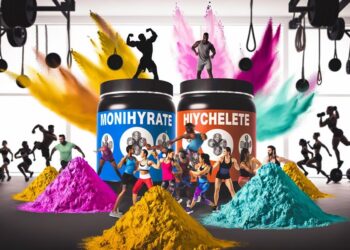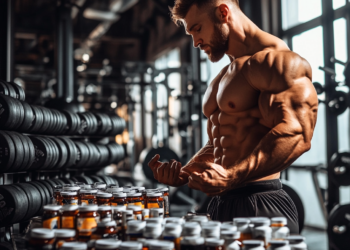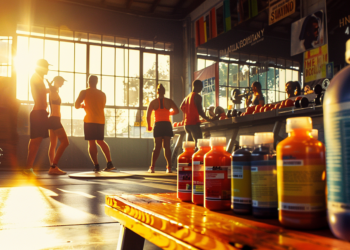Are you an athlete looking to reach peak performance? Look no further than the powerful combination of vitamins and minerals. These essential nutrients can play a pivotal role in supporting your athletic endeavors, helping you go the extra mile and push your limits. From the immune-boosting benefits of Vitamin C to the endurance-enhancing properties of B vitamins, each nutrient has a unique role to play in optimizing your performance. But that's not all – we'll also explore how magnesium can enhance your muscle strength, how iron can fuel your performance, and how zinc can optimize your recovery. So buckle up and get ready to unlock the secrets of supplementing for optimal athletic performance.
Key Takeaways
- Vitamins and minerals are essential for energy production, muscle function, and recovery in athletes.
- Zinc is important for immune function and overall health in athletes.
- Vitamin C acts as an antioxidant, aids in muscle recovery, and supports immune function in athletes.
- Iron is crucial for oxygen transport and energy production during exercise, especially for female athletes who are at a higher risk of deficiency.
The Importance of Vitamin C
Vitamin C plays a crucial role in supporting optimal athletic performance and overall health. As an antioxidant, it helps combat the oxidative stress that occurs during exercise. The production of free radicals increases during physical activity, leading to muscle damage and inflammation. Antioxidants like vitamin C neutralize these free radicals, reducing muscle damage and aiding in muscle recovery.
Furthermore, vitamin C has been shown to support immune function, which is particularly important for athletes. Intense exercise can temporarily suppress the immune system, making athletes more susceptible to infections. Vitamin C supplementation can enhance immune cell function, reducing the risk of illness and supporting overall health.
Research has also suggested that vitamin C can improve exercise performance. It may help reduce muscle soreness, improve muscle strength, and enhance endurance. Additionally, vitamin C plays a role in collagen synthesis, which is essential for maintaining healthy connective tissues like tendons and ligaments.
To reap the benefits of vitamin C, it is recommended to consume a variety of fruits and vegetables rich in this vitamin. However, for athletes with increased nutrient needs or those who struggle to meet their vitamin C requirements through diet alone, supplementation can be a convenient and effective option.
Boosting Endurance With B Vitamins
To further enhance your athletic performance and endurance, consider the potential benefits of incorporating B vitamins into your regimen. B vitamins play a crucial role in converting food into energy and are essential for maintaining optimal health and performance. Here are four ways B vitamins can help boost your endurance:
- Improving stamina with vitamin B12: Vitamin B12 is vital for red blood cell production, which helps carry oxygen to your muscles during exercise. By increasing your oxygen-carrying capacity, vitamin B12 can enhance your stamina and delay fatigue.
- Enhancing energy levels with vitamin B6: Vitamin B6 plays a key role in the metabolism of carbohydrates, proteins, and fats, the primary sources of energy for your body. By aiding in the breakdown and utilization of these nutrients, vitamin B6 can increase your energy levels, allowing you to train harder and longer.
- Supporting muscle recovery with B vitamins: Intense exercise can deplete your body's stores of B vitamins. Supplementing with B vitamins can help replenish these nutrients, promoting faster muscle recovery and reducing muscle soreness.
- Boosting mental clarity with B vitamins: B vitamins are essential for brain function and maintaining a healthy nervous system. By supporting neurotransmitter synthesis, B vitamins can improve mental clarity and focus, allowing you to stay sharp during long training sessions or competitions.
Incorporating B vitamins into your daily routine, either through a balanced diet or supplements, can help optimize your endurance and overall athletic performance. However, it's essential to consult with a healthcare professional or registered dietitian before starting any new supplementation regimen to ensure it aligns with your individual needs and goals.
Enhancing Muscle Strength With Magnesium

Magnesium is a crucial mineral that can significantly enhance muscle strength and performance. As an athlete, incorporating magnesium into your diet or considering magnesium supplementation can offer several benefits.
Firstly, magnesium plays a vital role in energy production. It is involved in the metabolism of adenosine triphosphate (ATP), which is the primary source of energy for muscle contractions. By ensuring adequate magnesium levels, you can optimize ATP production and improve your overall muscle strength and power.
Additionally, magnesium is essential for muscle relaxation. It acts as a natural calcium channel blocker, preventing excessive calcium influx into muscle cells and promoting muscle relaxation. This is particularly important for athletes who engage in high-intensity or repetitive activities, as it can help prevent muscle cramps and promote faster recovery.
To increase your magnesium intake, consider incorporating magnesium-rich foods into your diet. Some excellent sources of magnesium include leafy green vegetables, nuts and seeds, whole grains, and legumes. If you struggle to meet your magnesium needs through diet alone, you may consider magnesium supplementation under the guidance of a healthcare professional.
Fueling Performance With Iron
Now let's shift our focus to another vital mineral that can fuel your performance: iron. Iron plays a crucial role in improving oxygenation and preventing fatigue, making it an essential nutrient for athletes. Here are four reasons why iron is important for optimizing your athletic performance:
- Enhanced oxygen transport: Iron is a key component of hemoglobin, the protein in red blood cells that carries oxygen to your muscles. By ensuring an adequate iron intake, you can improve the delivery of oxygen to your working muscles, helping to enhance endurance and performance.
- Increased energy production: Iron is also necessary for the production of adenosine triphosphate (ATP), the primary source of energy for muscle contractions. Sufficient iron levels can support optimal ATP production, enabling you to generate more energy during exercise and reducing the risk of fatigue.
- Improved recovery and immune function: Iron is involved in the synthesis of collagen, the protein responsible for repairing damaged tissues. By maintaining adequate iron levels, you can support faster recovery from intense training sessions and reduce the risk of injuries. Additionally, iron plays a vital role in supporting a healthy immune system, helping to protect against illnesses and infections that can hinder your training.
- Optimal cognitive function: Iron is essential for brain health and cognitive function. It supports the production of neurotransmitters, such as dopamine and serotonin, which are important for mood regulation, motivation, and focus. By ensuring sufficient iron intake, you can optimize mental clarity and concentration during training and competition.
To fuel your performance and prevent fatigue, it is crucial to prioritize iron-rich foods in your diet. Good sources of iron include lean meats, seafood, poultry, beans, lentils, nuts, seeds, and dark leafy greens. It is also important to note that iron absorption can be enhanced by consuming vitamin C-rich foods, such as citrus fruits and peppers, alongside iron-rich meals.
Optimizing Recovery With Zinc

Zinc is a crucial mineral for optimizing recovery and supporting overall athletic performance. When it comes to recovering from intense workouts or competitions, reducing inflammation is essential. Zinc plays a role in modulating inflammation by inhibiting the production of pro-inflammatory cytokines. By reducing inflammation, zinc can help athletes recover faster and minimize muscle soreness.
In addition to its anti-inflammatory properties, zinc also plays a vital role in improving immune function. Intense exercise can temporarily weaken the immune system, making athletes more susceptible to infections. Zinc helps support the functioning of immune cells, such as neutrophils and natural killer cells, which are responsible for defending the body against pathogens. By enhancing immune function, zinc can help athletes stay healthy and avoid illnesses that could hinder their performance.
To optimize recovery and support overall athletic performance, it is important for athletes to ensure they are meeting their zinc requirements. Good dietary sources of zinc include oysters, beef, chicken, and pumpkin seeds. However, some athletes may benefit from zinc supplementation, especially if they have a zinc deficiency or have increased zinc needs due to intense training. It is recommended to consult with a healthcare professional or registered dietitian before starting any supplementation regimen.
Frequently Asked Questions
Are There Any Potential Side Effects or Interactions of Vitamin C Supplements With Other Medications or Supplements?
Potential drug interactions and recommended dosage for vitamin C supplementation should be considered. It is important to consult with a healthcare professional to determine the appropriate dosage and to discuss any potential side effects or interactions with other medications or supplements.
What Are Some Natural Food Sources of B Vitamins That Athletes Can Include in Their Diet?
Include foods like eggs, lean meats, whole grains, and leafy greens in your diet to get natural sources of B vitamins. Be cautious with vitamin C supplements as they can interact with certain medications and supplements.
Can Magnesium Supplementation Help With Reducing Muscle Cramps and Improving Recovery Time?
Yes, magnesium supplementation can help reduce muscle cramps and improve recovery time. It's a practical and evidence-based way to support your athletic performance.
How Can Athletes Ensure They Are Meeting Their Iron Requirements Through Diet Alone?
You can meet your iron requirements through diet alone. Eating iron-rich foods like lean meats, beans, and leafy greens can provide the necessary iron intake for athletes. It is possible to get enough iron from food alone.
Are There Any Specific Forms of Zinc Supplements That Are Better Absorbed by the Body for Optimizing Recovery?
To optimize recovery, consider zinc supplement forms that are better absorbed by the body. Look for chelated or citrate forms. However, it's important to consult with a healthcare professional before starting any new supplements.
Conclusion
In conclusion, supplementing with vitamins and minerals can play a crucial role in optimizing athletic performance. Vitamin C supports immune health, B vitamins boost endurance, magnesium enhances muscle strength, iron fuels performance, and zinc optimizes recovery. By incorporating these essential nutrients into their diet, athletes can improve their overall athletic performance and maintain peak physical condition. It is important to consult with a healthcare professional to determine the specific needs and dosages for individual athletes.













